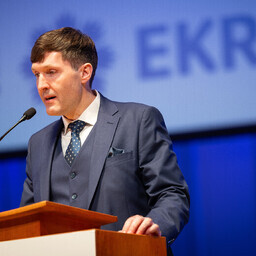EKRE chairman Martin Helme acknowledged that the party underestimated the impact of last summer's conflict.
EKRE experienced an internal conflict last summer. As a result, the EKRE board expelled three members: Henn Põlluaasa, Jaak Valge, and Silver Kuusik. Following this, hundreds of members left the party. For example, MEP Jaak Madison and members of parliament Ants Frosch and Alar Laneman left.
Helme said that the conflict may have affected regional work. "Probably more than we thought. We need to carry out an analysis of the regions. We are satisfied with the organization's functioning, but there are problems in the regions," Helme said.
Helme added that politics moves in waves. "There was a high wave, now there is no high wave. But the wave will return. If you sense the public mood, you're on the wave. If you don't sense it, you're in the bottom of the wave," he said.
Helme emphasized that EKRE is not at the bottom. "If you compare it to 2021, there was no wave back then. Support was higher then than it is now. But we knew that maintaining positions is good," he added.
Helme stated that EKRE is present in almost all municipalities. "We are in many councils and are conducting coalition negotiations in more places than in 2021," he said.
Helme also spoke about the Tallinn elections. "In Tallinn, we need to think about how to reach voters better. We didn't have well-known names there, and the messages didn't work so well," Helme said.
Helme concluded that EKRE's strength lies in rural areas. He also reiterated that e-elections in Estonia are not fair.
EKRE received 48,478 votes nationwide, ranking fifth among the parties. In Tallinn, EKRE did not make it to the city council.

